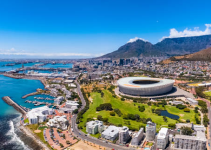Singapore looks perfect in pictures. The clean streets, towering skyscrapers, and futuristic Gardens by the Bay make it seem like a city that runs on autopilot. But spend a few days here, and you’ll realize there are unwritten rules that can make or break your experience.
I’ve watched tourists get slapped with hefty fines for innocent mistakes. I’ve seen locals shake their heads at visitors who unknowingly broke social norms. Your trip shouldn’t be a minefield of “oops” moments.
Here’s what you need to know before you set foot in this Southeast Asian gem. These aren’t the usual tourist traps everyone talks about—these are the real pitfalls that could cost you money, respect, or both.

Things to Avoid in Singapore
Singapore operates differently from most places, and what flies elsewhere could land you in hot water here. Let’s get into the specifics so you can enjoy your visit without any unwelcome surprises.
1. Chewing Gum in Public (Yes, Really)
You’ve probably heard this one before, but people still think it’s a joke until they’re standing at customs with their pack of Wrigley’s getting confiscated. Singapore banned chewing gum in 1992, and they’re serious about it. No selling it, no importing it, and technically no chewing it in public either.
The backstory makes sense. Vandals kept sticking gum on subway doors, causing delays and costing the city millions in cleaning. The government’s solution? Ban the whole thing. You can bring in small amounts for personal use (think: a few strips), but don’t try to be clever about it. The fine for importing gum for sale can hit SGD 100,000 (about USD 74,000), though regular tourists usually just get their gum taken away.
There’s a medical exception now—you can get therapeutic gum from pharmacies if you have a prescription. But your regular Orbit or Extra? Leave it at home. Your jaw will survive a few days without it.
2. Eating or Drinking on Public Transport
That morning coffee you grabbed on your way to the MRT? Don’t even think about taking a sip once you pass those gates. Singapore’s public transport system is spotless because it enforces a strict no eating or drinking policy, and the fine is SGD 500.
I’m talking about everything. Water, candy, even those tiny mints you pop in your mouth. Transit officers do random checks, and they don’t care if you’re a tourist who didn’t know. Your ticket gets written either way. The locals know this rule by heart—you’ll never see someone munching on anything underground.
If you need to hydrate or grab a bite, finish it before you tap your card. Stand outside the station for two minutes. It’s easier than explaining to your travel companions why you just blew SGD 500 on a bottle of water.
3. Jaywalking Within 50 Meters of a Crossing
Singapore has pedestrian crossings everywhere. Use them. If there’s a crossing within 50 meters of where you are, and you decide to dash across the street anyway, you’re technically breaking the law. The fine is SGD 50 for first-time offenders, but it can go up to SGD 1,000 if you’re a repeat offender or cause an accident.
Traffic here moves fast. Drivers expect pedestrians to follow rules, so they’re not always watching for someone sprinting across mid-block. Beyond the legal risk, you’re putting yourself in real danger. Those covered walkways and zebra crossings exist for a reason.
Watch how the locals do it. They wait for the light, use the overhead bridges, and take the underground passages. Nobody’s in such a rush that they’re willing to risk a fine or worse. Follow their lead.
4. Smoking Anywhere Except Designated Areas
If you’re a smoker, Singapore will test your patience. You can’t light up in most public places—no bus stops, no covered walkways, no parks (unless there’s a designated area), no hawker centers, and definitely not inside any building. The fine starts at SGD 200 for smoking in prohibited areas, and it goes up from there.
Those yellow boxes painted on the ground? That’s where you’re allowed to smoke. Sometimes they’re few and far between, especially in business districts. You might walk five blocks before finding one. Smokers here plan their routes around these zones, checking apps that show where the nearest designated area is.
Cigarettes are also expensive—a pack can cost upwards of SGD 13 (around USD 9.60) due to heavy taxes. Many smokers end up cutting back just because of the cost and inconvenience. If you’re trying to quit anyway, Singapore might be the motivation you need.
5. Connecting to Public Wi-Fi Without Using a VPN
Free Wi-Fi at malls, cafes, and hotels seems convenient until you realize how exposed your data is. Singapore has a strong internet infrastructure, but public networks are still public networks. Hackers target tourists who log into their banking apps or enter credit card details on unsecured connections.
Your hotel Wi-Fi might seem safe, but it’s shared with hundreds of guests. Coffee shop networks? Even riskier. I’ve met people who had their accounts compromised within hours of arriving because they were too eager to post vacation photos without protecting their connection.
Download a reputable VPN before your trip. Set it to auto-connect on unfamiliar networks. It takes five minutes of setup and could save you weeks of fraud disputes. Your financial security isn’t worth the convenience of skipping this step.
6. Buying Duty-Free Alcohol and Opening It Before Customs
Singapore has generous duty-free allowances—up to 1 liter of spirits, 1 liter of wine, and 1 liter of beer if you’re over 18 and arriving from anywhere except Malaysia. Sounds great until you realize the rules about where you can open those bottles.
People get excited about the savings and crack open their purchases at Changi Airport before clearing customs. Bad move. That bottle needs to stay sealed until you’ve cleared immigration and customs. If you’re caught with an opened bottle, you’ll pay duty on it, which defeats the entire purpose of buying duty-free.
The penalties get worse if you try to bring in more than your allowance without declaring it. Alcohol duty in Singapore is steep—sometimes higher than the cost of the bottle itself. Keep your receipts, know your limits, and keep everything sealed until you’re officially in the clear.
7. Littering (And That Includes Cigarette Butts)
Singapore’s reputation for cleanliness isn’t accidental. The city enforces anti-littering laws with fines starting at SGD 300 for first-time offenders. Drop a cigarette butt? That’s littering. Toss a receipt on the ground? Littering. Let a napkin blow away from your hand? Still littering.
Repeat offenders face steeper fines—up to SGD 2,000 for a second offense, and SGD 5,000 for a third. Plus, you might be sentenced to a Corrective Work Order, which means you’ll spend hours picking up trash in a bright vest while people take photos. Trust me, that’s not the Singapore souvenir you want.
Bins are everywhere, but they’re not on every corner. Sometimes you need to hold onto your trash for a few minutes until you find one. Locals do this without thinking. Carry a small bag for your trash if needed. Your Instagram feed doesn’t need a photo of you in a neon cleanup vest.
8. Leaving Your Belongings Unattended to “Chope” a Seat
Here’s a cultural quirk that drives some visitors crazy. Singaporeans “chope” (reserve) seats at hawker centers by leaving tissue packets, umbrellas, or water bottles on tables. It’s so common that you’ll see empty tables covered in personal items while people queue for food.
As a visitor, don’t do this with valuable items. Locals respect the tissue packet system because it’s a shared understanding, but that doesn’t mean your phone or wallet is safe on a table in a crowded food court. The crime rate is low, but opportunistic theft still happens, especially in tourist-heavy areas.
Use a cheap tissue packet if you must reserve a seat. Better yet, travel with a companion who can hold the table while you order. That way, you’re not tempting fate or creating an awkward situation if someone doesn’t recognize your attempt at “choping.”
9. Assuming Everything Closes Early
Singapore’s reputation as a strict, buttoned-up city makes some visitors think everything shuts down at 9 PM. That’s outdated. Hawker centers stay open late. Bars in Clarke Quay run until 2 AM on weekends. Convenience stores operate 24/7. Even some shopping malls keep their doors open until midnight.
The mistake happens when people rush through dinner, thinking they need to finish by 8 PM, or skip a night market because they assume it’s closed. You end up missing out on the city’s best after-dark experiences—the rooftop bars with skyline views, the late-night satay stalls that serve grilled meat until 3 AM, the 24-hour dim sum spots in Chinatown.
Check actual hours before you plan your evening. Singapore’s nightlife is more active than you’d guess. Some of the best food appears after 10 PM, when the supper crowd comes out and the really good hawkers fire up their second shift.
10. Taking Photos Without Permission (Especially of People)
This applies everywhere, but Singapore takes privacy seriously. Taking photos of strangers without permission—especially if you’re posting them online—can land you in trouble. Street photography isn’t illegal, but if someone feels you’ve violated their privacy or dignity, they can file a complaint.
Military installations, government buildings, and certain parts of the airport are off-limits for photography. You’ll usually see signs, but not always. Security guards will stop you immediately if they catch you snapping photos in restricted areas. They’ll ask you to delete the images, and depending on what you photographed, the consequences could be more serious.
Always ask before photographing people directly. Most Singaporeans are friendly and don’t mind if you’re polite about it. But that elderly woman at the hawker center or that family at Gardens by the Bay? They didn’t consent to becoming content for your social media. Respect goes a long way, and it keeps you out of uncomfortable confrontations.
Wrapping Up
Singapore rewards visitors who do their homework. The rules might seem strict, but they exist for good reasons—public safety, cleanliness, and mutual respect. Once you understand them, you’ll find the city incredibly easy to get through.
Keep these ten things in mind, and your trip will be smooth. You’ll save money on fines, avoid awkward situations, and maybe even earn some nods of approval from locals who appreciate that you took the time to learn their ways.
That’s when Singapore really opens up—when you show you care enough to respect how things work here.


